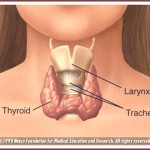DiabetesHealth: New Study Links Diabetes to Lower Prostate Cancer Risk

A new study shows that men with heart disease who have diabetes may have a lower risk of developing prostate cancer.

A new study shows that men with heart disease who have diabetes may have a lower risk of developing prostate cancer.

Diabetic patients have an impaired ability to heal wounds, so there is a critical need to develop new treatments to improve healing.

Regular exercise can reduce the development of painful neuropathy thanks to increased amounts of a protective substance called heat shock protein 72 (Hsp72)

Fluctuations in glycated hemoglobin (HbA1c) are correlated with the development of nephropathy, but not retinopathy, in patients with type 2 diabetes, according to a new study published online March 14 in Diabetes Care.

A study released late last month, showing that average calorie consumption in the United States has fallen while the rate of obesity has climbed, was a surprise to many — including the study’s own authors.

For people with type 2 diabetes mellitus, a nine-month aerobic and resistance training program significantly improves quality of life compared with no exercise, according to research published online.

A new treatment combining two hormones can reduce appetite, according to new research presented today at the Society for Endocrinology annual conference in Harrogate, UK.

Researchers described the death rate change for those with diabetes and pre-diabetes as a “non-significant increase in mortality over time.”

People who have type 1 diabetes are more likely than others to develop an autoimmune thyroid condition.

The U.S. Food and Drug Administration is looking into new evidence that suggests a group of recently approved diabetes drugs can increase the risk of pancreatitis and other problems.

The work showed that a particular type of stem cell, known as the mesenchymal stem cell (MSC), could increase wound healing when applied together with a biomaterial made from collagen.

Wittert, a professor of medicine at the University of Adelaide, and his colleagues suspect the sex hormone known to increase libido and musculature could also help prevent a form of diabetes that tends to strike later in life and afflicts more than 330 million people

Researchers discover that the genes active in a person’s belly fat are significantly different from those in his or her thigh fat, a finding that could shift the way we approach unwanted belly fat—from banishing it to relocating it.

Work by researchers at The University of Western Australia could revolutionise testing for Type 1 diabetes around the world.

The drug Ranexa (ranolazine) may help reduce chest pain in people with type 2 diabetes, a new study finds.

People think of insulin and diabetes, but many metabolic syndromes are associated with some types of cognitive defects and behavioral disorders, like depression or dementia.

A class of medications commonly prescribed to lower blood sugar in diabetic patients appears to protect them from developing heart failure.

Conversion of adult pancreatic alpha cells to beta cells might be the breakthrough researchers have been looking for.

Scientists at the renowned Diabetes Research Institute (DRI) at the University of Miami may be just five to seven years away from curing Type 1 diabetes.

Drugs that combat aging may be available within five years, following landmark work led by an Australian researcher.